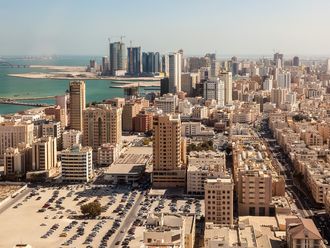London: Bahrain has released four Britons held in the country for 18 months after the banks they worked for collapsed, in a meltdown that has caused a multi-billion dollar row between two Saudi families.
The four—who worked at banks related to the empires of businessman Maan Al Sanea and the Algosaibi family he is now in conflict with—all returned from Bahrain this week, sources close to the matter told Reuters.
The men had been ordered not to leave Bahrain pending investigations after Awal Bank and The International Banking Corporation (TIBC) were put into administration in the middle of 2009.
But no formal accusations were ever levelled against the four. They are Tony James, Alistair MacLeod and Cliff Giddings, all formerly senior executives at Awal Bank, and Kevin Moriarty, who was at TIBC.
The failure of the banks is a centrepiece in a spectacular row that has erupted between the Ahmad Ahab Algosaibi and Brothers (Ahab) business empire and Al Sanea, who is related by marriage to the family, but runs his own Saad Group.
The Saad Group declined to comment.
The Algosaibi family has accused Al Sanea of defrauding them of billions of dollars, in court cases in New York, the Cayman Islands and London. The Saad Group, Maan Al Sanea and his wife Sana Algosaibi deny the accusations.
The release comes after diplomatic pressure from the UK around a recent visit of the Bahraini crown prince, and a second investigation into the matter by Kroll, a consultancy known for its work on high-profile fraud and crime cases.
"We are aware of this case and have been providing consular assistance, (but) we cannot comment on the detail of this," a spokeswoman for the Foreign Office said.
An earlier report into the demise of Awal by HIBIS, a relatively unknown British group, was handed to Bahraini authorities last year.
The conflict between the two Saudi families—which involves an estimated $22 billion in bank debt—is highly complex and unlikely to be resolved anytime soon.
In a boost for the Saad Group, a New York court threw the case out on jurisdictional grounds earlier this year. But the Caymans recently decided it will hear the case locally, though this decision can still be appealed.












